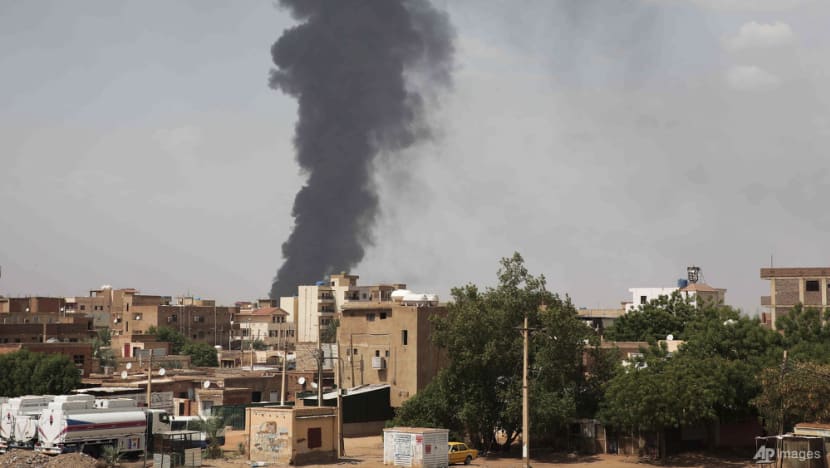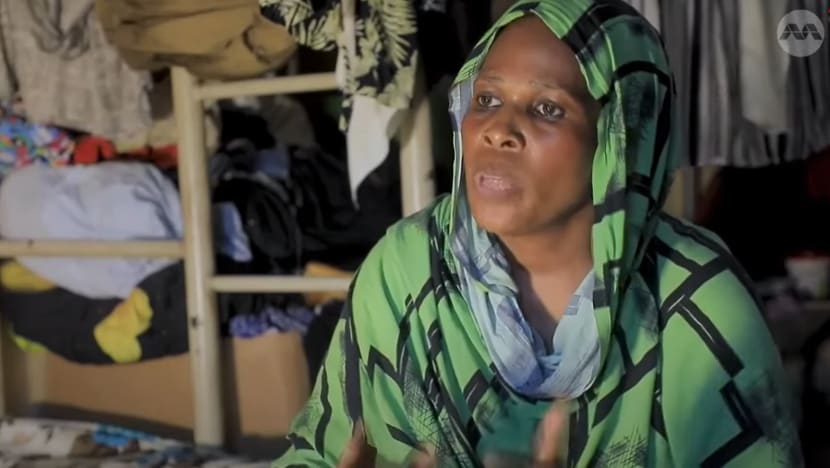‘We have been forgotten’: Humanitarian crisis worsens in Sudan as war drags on
The civil war in Sudan has displaced more than 10 million people – five times more than in Gaza – and become one of the worst humanitarian crises of current times.


This audio is generated by an AI tool.
SUDAN: Two major wars in the Middle East and Ukraine have been foremost on people’s minds, with both showing no signs of ending.
But on the African continent, another conflict that has displaced more than 10 million people – five times more than in Gaza – is getting a fraction of the attention.
The civil war in Sudan, which broke out across the nation one-and-a-half years ago, has become one of the worst humanitarian crises of current times.
The conflict erupted in April last year due to a violent campaign for power, largely between the Sudanese Armed Forces and the Rapid Support Forces (RSF) paramilitary group.
While the death toll has been estimated at 20,000 to 150,000 people, the numbers have been difficult to confirm in the chaos.
In August, famine was declared in North Darfur, where the Zamzam camp shelters thousands of displaced Sudanese. According to UNICEF, an estimated 730,000 children are projected to suffer severe acute malnutrition this year alone.
“NO ONE IS REMEMBERING SUDAN”
Amid their suffering, some Sudanese told CNA they fear they have been forgotten, despite international condemnation and calls to stop the war when it first broke out – including from United Nations secretary-general Antonio Guterres and Pope Francis.
“The world cares about other refugees and displaced people, but no one is remembering Sudan,” said Safaa Ahmed, a displaced mother.
“We have been forgotten (and have) to face this war and crisis alone.”
Her family was among thousands who fled to the seaside city of Port Sudan, which has become a relative haven after the government relocated there from Khartoum.
The Sudanese army lost control of most of the capital at the start of the war. When the RSF intensified shelling on civilians and houses, residents fled across valleys and deserts, travelling for days to reach safe regions.
For the past six months, Safaa has stayed in Port Sudan with her eight children and seven grandchildren. But like others across their country, those who sought refuge there now face another crisis: Acute hunger.
“We live in a miserable situation with very little aid and food. We ran from death to starvation. No one cares. No one listens,” she added.

Food security experts have projected that 2.5 million people across the country could die of starvation by the end of this year, not just due to conflict but also poverty and climate change.
Devastating floods have compounded the crisis, feeding outbreaks of diseases like cholera. The bacterial disease spreads through contaminated water and food, causing severe diarrhoea, dehydration and even death.
Help has not come easily as other wars in other places take centre stage.
As of early October, the UN humanitarian appeal for Sudan received US$1.4 billion for 14.7 million people.
Meanwhile, Ukraine received US$1.6 billion for 8.5 million people, while the Palestinian appeal got US$1.9 billion for nearly 3 million people.
"We receive some aid but the need is bigger. There are 500 families here with an average of five members per family,” said Rehab Hamid, who supervises a camp for internally displaced persons.
She added that non-governmental organisations have not intervened, leaving the camp – which is facing a water crisis – reliant on philanthropic deeds.
“Some women, girls and boys have to work outside in order to support their families,” she said.
WAR ROOTED IN VIOLENT HISTORY
Another reason for why the Sudan war rages on under the radar is its long history of violence, which has blunted the urgency of the current situation.
The country’s past includes one of the worst mass killings in modern times – the Darfur genocide in the early 2000s.
At the time, clashes between the Sudanese army and the RSF left more than 14,000 people dead and displaced more than 8 million.
Now, major characters from that dark chapter are fighting each other today.
For example, General Abdel Fattah al-Burhan, a military commander who has been the country’s de facto leader for years, and Mohamed Hamdan “Hemedti” Dagalo – who leads the RSF – emerged from the Janjaweed militia.
Both men feature front and centre in a war filled with reports and witness accounts of ethnic killings, sexual violence, and executions of children.
In September last year, prominent international human rights lawyer Amal Clooney pointed out that the “nightmare is unfolding again”.
“Why? We all know. It's because those responsible for the crimes were never forced to answer for them,” she said.
FOREIGN ACTORS INVOLVED
Simon Adams, president and CEO of international nonprofit Centre for Victims of Torture, said inaction at the UN Security Council speaks volumes about where the world stands on Sudan.
“The great powers … kind of realise that there's not going to be a short-term solution here. And so, they've been quite content, I think, to just let it sit off in the distance and develop into what is now the largest humanitarian crisis in the world,” he told CNA.
“And I think maybe that's an admission by them, inadvertently, that they don't see a diplomatic solution as being possible.”
He also pointed to the “huge amount of regional meddling” in the war.
Foreign actors at play, who are believed to be arming the warring sides despite a UN arms embargo, have been complicating matters.
Amnesty International recently released a report that identified weapons and ammunition from countries like Yemen and the United Arab Emirates, Turkiye and Serbia in the north, and even those as far away as Russia and China.
Sudan has accused the UAE of arming the RSF, while the RSF accuses Egypt of taking part in air strikes. Iran is also widely reported to be supplying the Sudanese army with weapons and drones.
This interest stems from Sudan's strategic location on the Red Sea, where about 12 per cent of global shipping transits.
“Whoever controls Sudan, controls the Red Sea,” said Alexander Rondos, a senior adviser with the Africa Center at the US Institute of Peace.
With these factors at play, a diplomatic solution to the war has become tricky to navigate – and fears remain that many Sudanese may not survive the year unless ceasefires are agreed on and upheld, the conflict de-escalates, and aid is allowed through.















